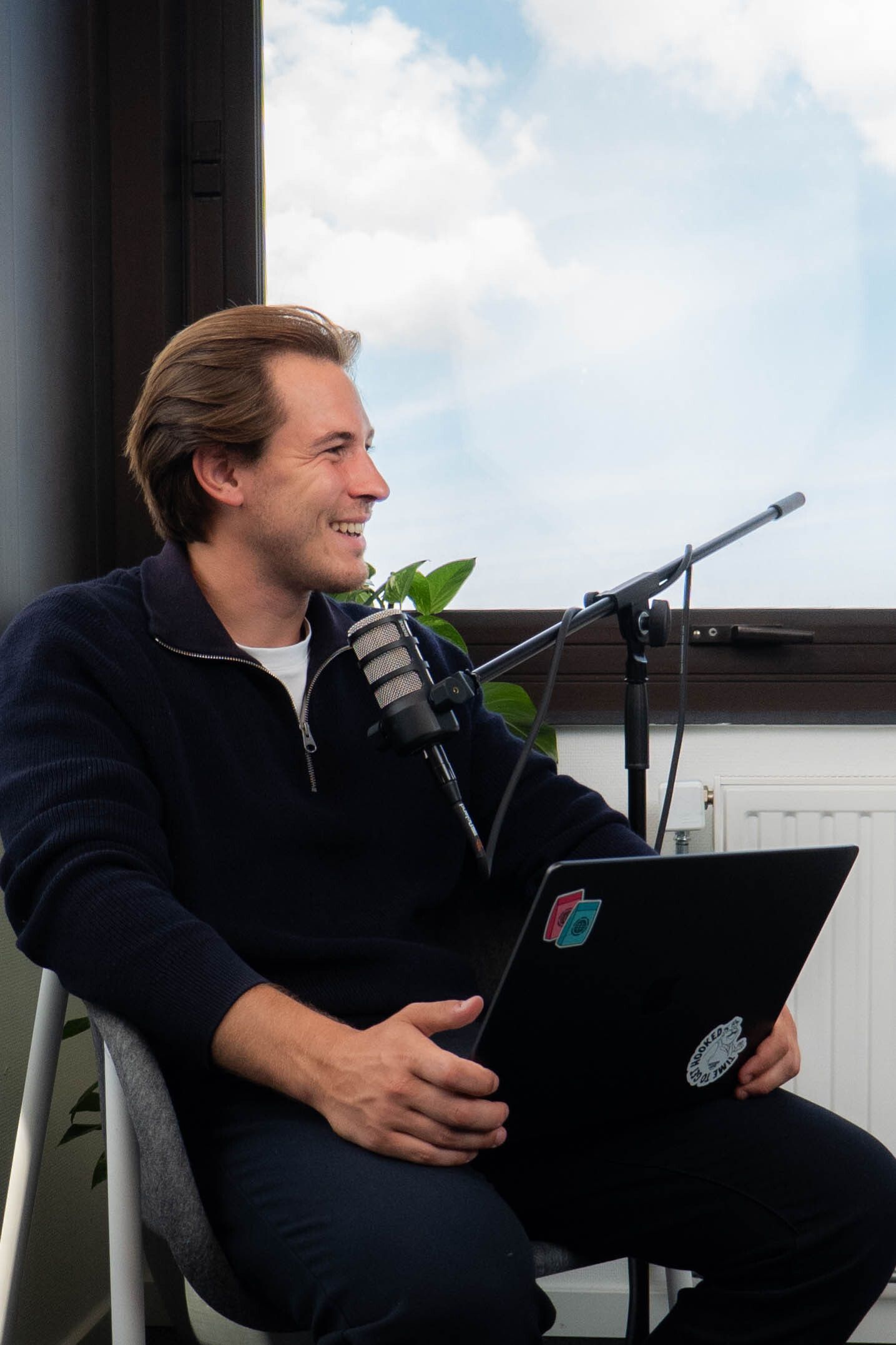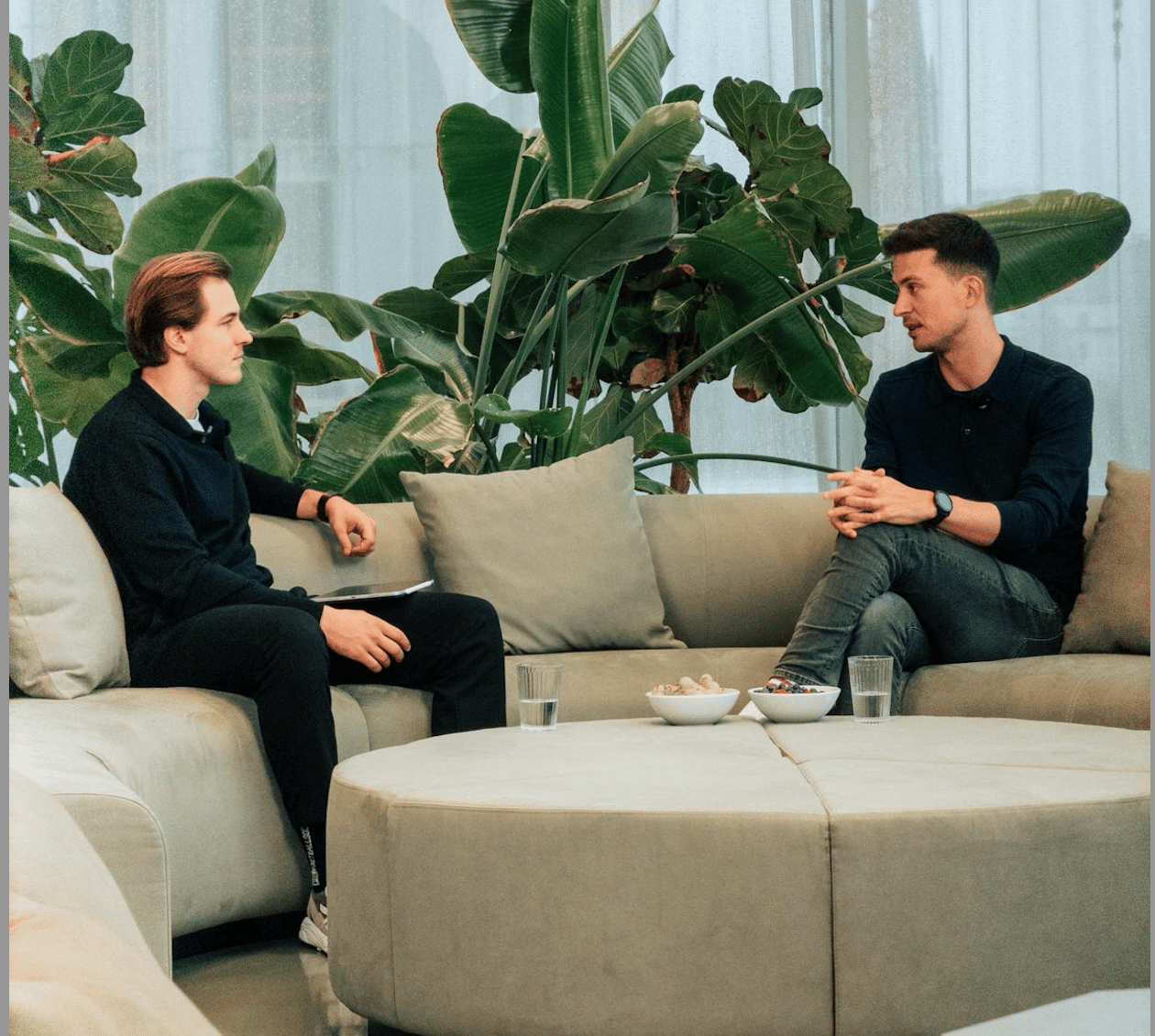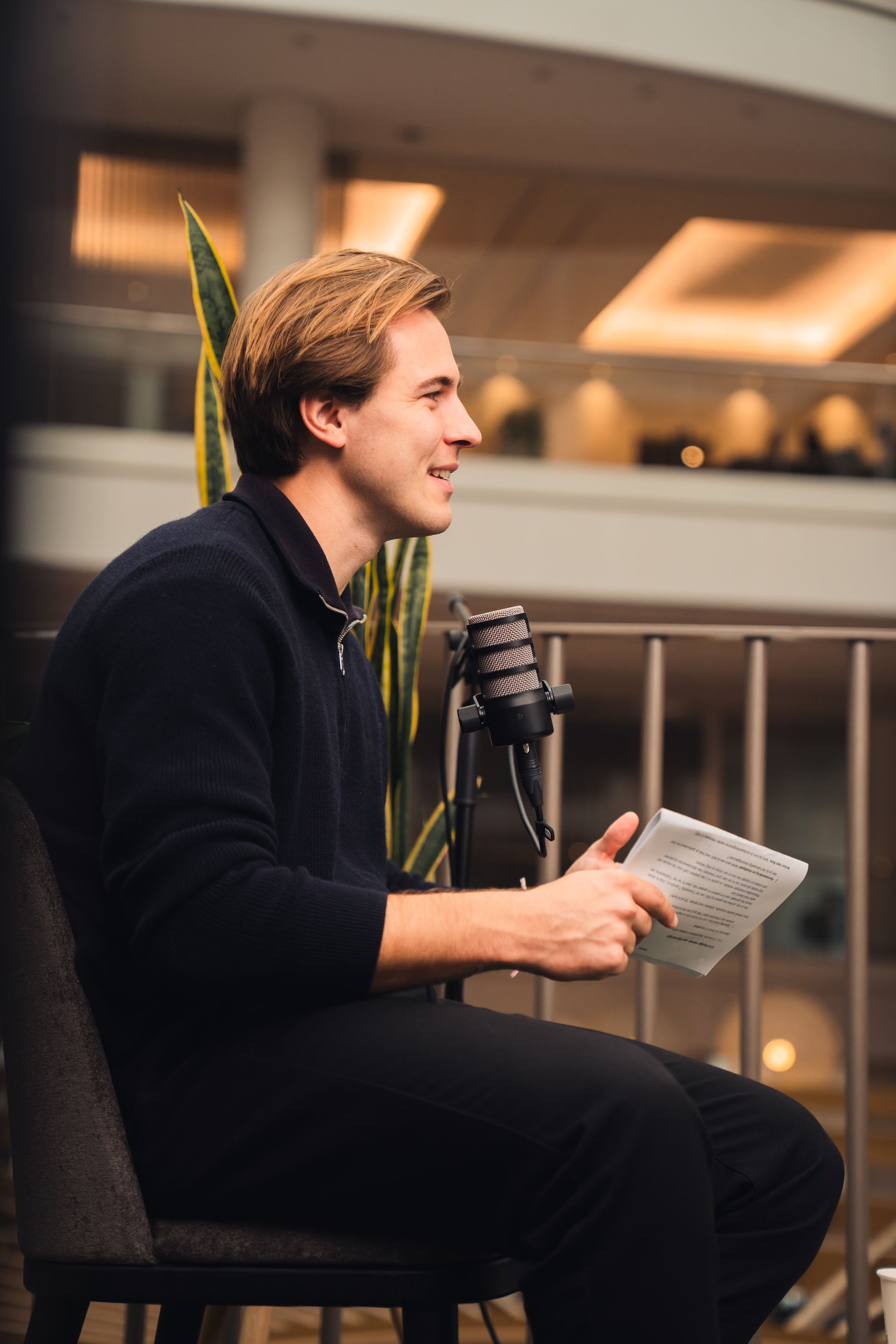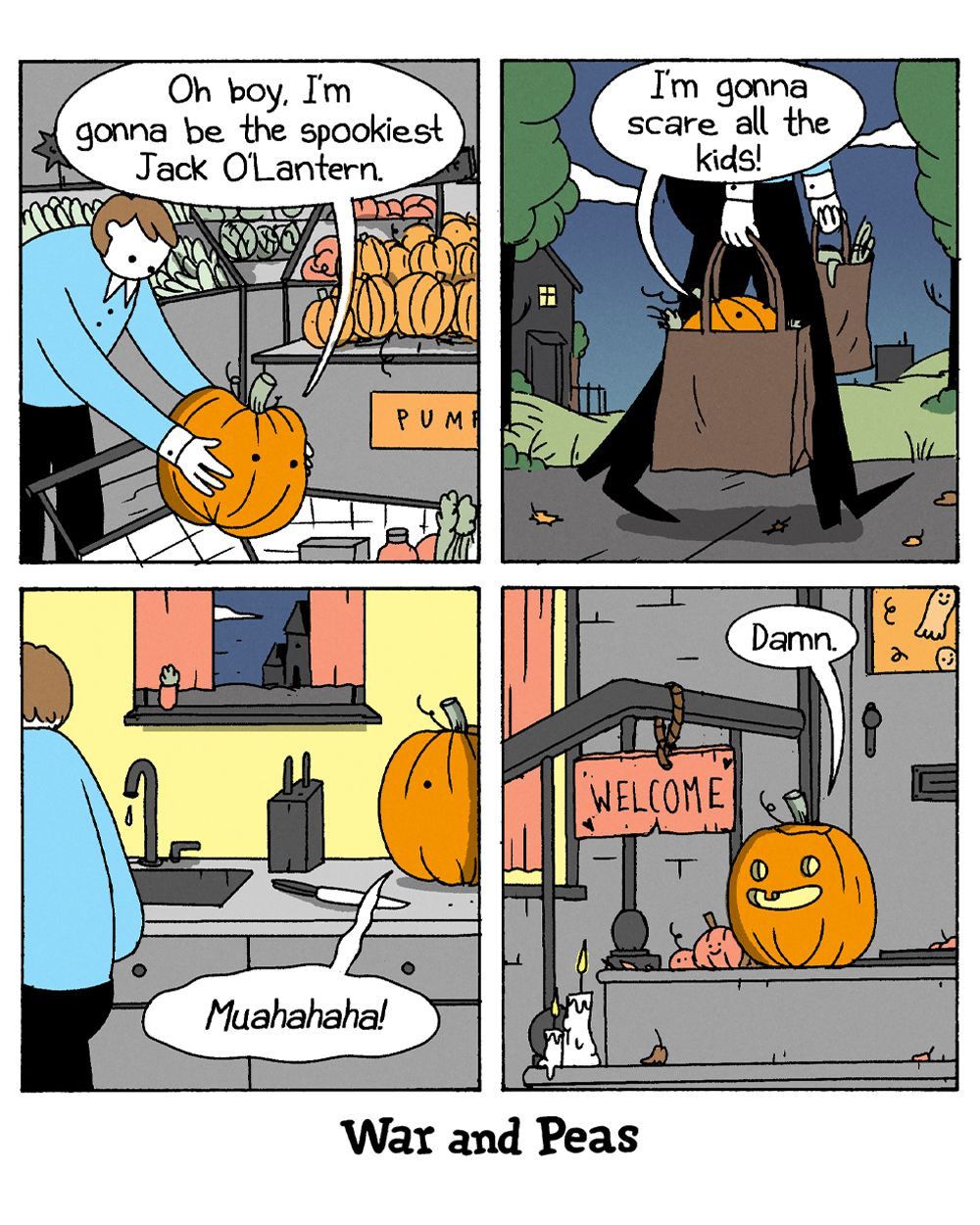- Antwerpreneurs
- Posts
- 🦥 #20 Finding Your Wings: The Story Behind Podcast For Talent
🦥 #20 Finding Your Wings: The Story Behind Podcast For Talent
Meet Lorenz Streffer

Antwerpreneurs is the newsletter of Antwerp’s business stories.
We talk to founders, share their journeys, and the lessons they learned along the way.
Today
✋ Antwerpreneur: Lorenz Streffer - Founder and Podcast Host of Podcast For Talent
🧃 Giggle Juice: By War and Peas
💎 Quiz Question: Can you guess how many downloads a podcast needs to have to be in the top 1%?
✋ Antwerpreneur: Lorenz Streffer

Lorenz was born in Switzerland to German parents. At seven, his family moved to Belgium. New country, new language, and new culture.
In Germany, kids as young as ten do short internships. They get a glimpse of work life and they can see the paths ahead.
Belgium was different, and his parents didn’t have the network to guide him through a foreign system.
“I realized during my studies that I didn’t know what jobs existed, how to get them, or even what I could do after graduation,” Lorenz says.
He was doing everything “right” on paper, two internships, organizing job fairs at university. But inside, he felt completely lost.
The Moment It Hit Him
Even after all that effort, he still didn’t have clarity.
Then it clicked: “This might not be just my problem. Other students probably feel lost too. I want to show them their options, and show them how others have found their paths.”
That thought became Podcast For Talent.

Giphy
The First Episode Disaster
Lorenz laughs about it now, but the first episode was a ‘disaster’.
“The camera shut down halfway through. My guest had been talking for an hour, and I’d asked maybe two questions total,” he says.
He had bought a cheap camera from Coolblue, rented a podcast studio, and assumed he’d get rich quickly. Reality check: he didn’t.
But the disaster taught him something crucial: if you want to build something of quality, you have to prepare and take it seriously.

Giphy
Learning To Do It Right
After that first episode, Lorenz knew he needed help.
He built a small team of four freelancers, videographers and editors. Suddenly, the podcast looked professional. Companies actually wanted to pay for it. The difference was night and day.
The lesson: great ideas need great execution. You can’t rely on enthusiasm alone.
Mentorship That Opens Doors
Before the podcast was even published, Lorenz landed his first client.
How? Mentorship.
While at university, he attended a talk by Nick Van Langendonck. He was inspired. He pitched his idea, stayed in touch, and eventually asked Nick to mentor him.
That guidance opened the door to Hewlett-Packard (HP).
Lesson: a rough first attempt can open doors if you have the right guidance and aren’t afraid to ask for help.

Tenor
Turning a Podcast Into a Business
Lorenz didn’t treat Podcast For Talent as a hobby. He treated it like a business.
Three questions guided him:
What can I offer companies?
How do I measure impact?
How much are they willing to pay?
His answer: compare it to job fairs.
At a typical fair, a company talks to 100 students for five minutes each. That’s it, five rushed minutes.
With Podcast For Talent? Companies reach 200–400 students for an hour, at a fraction of the cost.
“It removes the pressure,” Lorenz says.
The podcast doesn't replace job fairs, it improves them.
Students can listen before a fair to prepare, or after to follow up on companies they found interesting. Companies can even share episodes during the fair, giving students more time to understand the role and culture.

Work in Progress
Today, he offers three options:
Studio recording at Antwerp Tower.
On-site recording at the company.
Live podcasts at IzyCoffee with 10 students, coffee and snacks included.
Challenge: student attendance.
“The first live podcast had ten students. The next, only one. Then two. I’m still figuring out how to guarantee turnout,” Lorenz admits.
He sees this as part of the learning curve, iteration is key.
Three Ways He Finds Clients
Lorenz has tested multiple approaches to attract companies:
Students sharing episodes with companies
“Most assume it’s free,” Lorenz notes. “So many leads don’t convert.”HR managers or campus recruiters
“They’re interested, but they still need approval from higher-ups. Sometimes the message gets lost.”Executives in his network (main focus now)
He invites professionals to be guests, then asks them to “pass the mic” and nominate the next person worth listening to for the next generation.

Tenor
Bridging the Student–Company Gap
Lorenz noticed a recurring problem: misaligned expectations.
Students think opportunities are everywhere.
Companies see young hires as risky “job hoppers.”
Stats: 50% leave within two years. 70% leave within three.
His advice to companies:
"Companies need to trust young talent more. Involve them in decisions, show impact, make them part of something bigger."
His advice to students:
"Find a role that fits your skills. Think about growth under a manager, not just the company name."
Growth Through LinkedIn
Every guest on Podcast For Talent is often appearing on a podcast for the first time.
When they share it, their networks engage. That’s how Lorenz grows. Organic, and authentic. LinkedIn drives most inbound leads.
The Next Six Months
Lorenz is realistic: the next 6–9 months will decide the podcast’s future.
Either companies lose interest and he finds a job, returning later to start something new, or it becomes profitable enough to support him full-time.
He’s expanding strategically:
January: law students series
February: product development students series
Each series targets a specific field, giving students a deep understanding of career possibilities they didn’t know existed.

Tenor
The European Vision
Long term, Lorenz dreams bigger.
“In 4–5 years, I want to franchise this model across Europe. Every country should have podcasts covering every career and job. No student should ever feel lost again.”
He imagines a library of thousands of podcasts with every career represented and every path visible.

From a lost economics student to a founder giving direction to hundreds, Lorenz found his wings.
“And now, I help others find theirs. So everyone has their roots and their wings.”
Lorenz’s Recommendations
Persons: Dieter De Mesmaeker & Hendrik Van Hove from Conveo, Chris Williamson, Freddy_Eats_World and LimbaReads
Podcasts: Koolcast, DS Vandaag, Modern Wisdom, Straight-Line, and Kick&Rush
Book: The Diary of CEO by Steven Bartlett
Favorite place in Antwerp: Park den Brandt and his co-working, Silversquare
Antwerpreneur-to-Antwerpreneur Q&A
Question: What's something you wished you had done sooner?
Lorenz’s answer: “In the past I would treat my time and others very carelessly, which would cause me and others stress. Missing deadlines, wasting time in meetings.”
Where can you find Lorenz?
You can find him on LinkedIn.
💬Enjoyed this story? Go like or comment our post on our Linkedin page—every little thing helps us get these stories out there!
🧃 Giggle Juice
Happy halloween! 🎃

💎 Quiz Question
How many downloads does a podcast episode need in its first week to be in the top 1% of all podcasts in 2025?
A) 4,000
B) 40,000
C) 400,000
D) 4,000,000 +
You can find the answer at the end
Pura Vida! 🦥
Jose
P.S. Got 3 seconds? We’re not mind readers (yet), so we need your help to rate this issue!

If you enjoyed the newsletter, please share it with your friends and family!
Forwarded this email? Sign up here
Answer: A) 4,000
Reply